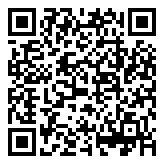
التعهيد الجماعي والتعليق التوضيحي لبيانات تدريب الذكاء الاصطناعي
Leverage human input to label and improve training datasets for better AI model performance.
Pillar
Data – Readiness, Governance, Quality & Ethics
ملخص
This course focuses on the role of crowdsourcing and data annotation in preparing high-quality training data for Generative AI models. Participants will learn methods to effectively collect, label, and validate data using human input, ensuring datasets are accurate, diverse, and aligned with AI training goals.
Learning Objectives
Participants will be able to:
-
Understand the importance of crowdsourcing and annotation in AI data preparation
-
Design effective annotation tasks and guidelines
-
Manage crowdsourcing platforms and contributor quality
-
Implement quality control and validation techniques
-
Address ethical considerations in human data labeling
Target Audience
-
Data scientists and AI trainers
-
Data engineers and project managers
-
Quality assurance teams
-
AI ethics and compliance officers
Duration
20 hours over 4 days (5 hours per day)
Delivery Format
-
Instructor-led sessions on annotation principles and tools
-
Practical exercises designing annotation workflows
-
Case studies of successful crowdsourcing projects
-
Group discussions on quality and ethics
Materials Provided
-
Annotation guideline templates
-
Access to sample crowdsourcing platforms
-
Quality assessment checklists
Outcomes
-
Ability to set up and manage crowdsourcing projects for AI training data
-
Improved dataset quality through effective annotation practices
-
Enhanced collaboration between human annotators and AI systems
-
Awareness of ethical issues in crowdsourced data collection
Outline / Content
Day 1: Introduction to Crowdsourcing and Annotation
-
Role of human input in AI training data
-
Overview of annotation types and methods
Day 2: Designing Annotation Workflows
-
Creating clear instructions and task structures
-
Choosing platforms and recruiting contributors
Day 3: Quality Control and Validation
-
Techniques for monitoring annotation accuracy
-
Handling disagreements and ensuring consistency
Day 4: Ethics and Best Practices
-
Addressing privacy, consent, and bias in data labeling
-
Strategies for sustainable crowdsourcing projects
